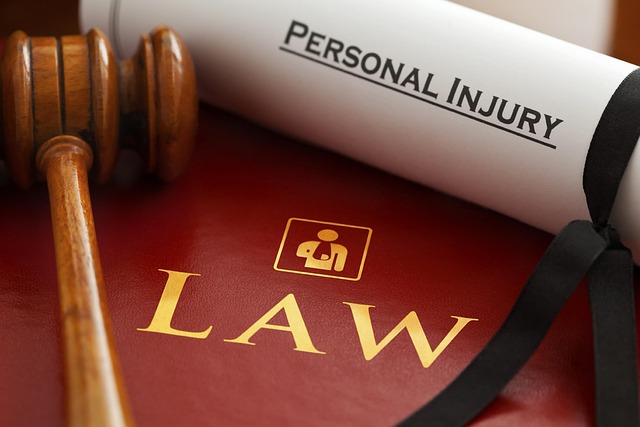Securities regulations play a pivotal role in shaping criminal law cases, especially in white-collar defense, where they provide a complex yet powerful framework for lawyers to challenge evidence and defend clients. These regulations, designed to protect investors and maintain market integrity, influence outcomes by guiding investigations, enforcing transparency, and offering legal safeguards for defendants. Understanding this interplay is crucial for navigating complex cases effectively, as securities laws can lead to successful challenges, reduced charges, or even dismissals, ultimately impacting the trajectory of criminal litigation involving financial crimes.
“Unraveling the intricate world of criminal law cases, especially those involving securities regulations, is essential for legal professionals and enthusiasts alike. This comprehensive article delves into the multifaceted aspects that shape these proceedings. From understanding key concepts to examining defendant rights, we explore how securities laws influence investigation strategies, prosecution tactics, and ultimately, litigation outcomes. Through a mix of theoretical insights and real-world case studies, readers will gain valuable knowledge on this dynamic interplay.”
- Understanding Criminal Law Cases: An Overview of Key Concepts and Players
- The Role of Securities Regulations in Criminal Litigation: A Comprehensive Look
- Impact on Investigation and Prosecution Strategies: Techniques and Trends
- Defendant Rights and Protections Under Securities Laws: Navigating a Complex Landscape
- Case Studies: Real-World Examples of Securities Regulations Influencing Outcomes
Understanding Criminal Law Cases: An Overview of Key Concepts and Players

Criminal law cases involve a complex web of legal procedures, where understanding key concepts and identifying crucial players is essential to navigating the system effectively. At its core, criminal law focuses on crimes and their punishment, with the state or prosecution acting as the main plaintiff, aiming to prove guilt beyond a reasonable doubt. The defendant, accused of a crime, has rights guaranteed by law, including the right to legal representation, a fair trial, and appealing any adverse outcome.
Securities regulations play a significant role in criminal law cases, especially in white-collar defense, where financial crimes are involved. These regulations aim to protect investors and maintain market integrity. An unprecedented track record of successful outcomes for his clients often relies on the intricate knowledge of securities laws, which can be exploited by skilled lawyers to challenge evidence and argue for their customers’ innocence or reduced charges.
The Role of Securities Regulations in Criminal Litigation: A Comprehensive Look

Securities regulations play a pivotal role in shaping the landscape of criminal litigation, often influencing the outcomes of cases that involve financial crimes and white-collar offenses. These regulations are designed to ensure fairness, transparency, and integrity within the financial markets, but their impact extends far beyond market stability. In the realm of criminal law, securities laws serve as a powerful tool for investigators and prosecutors, offering a comprehensive framework to unravel complex financial schemes and hold perpetrators accountable.
Understanding how these regulations impact litigation outcomes is crucial in achieving extraordinary results. By meticulously examining transactions, tracking financial trails, and enforcing strict compliance standards, securities regulations provide a robust foundation for building strong cases. This, in turn, facilitates the winning of challenging defense verdicts, where the respective business practices and decisions are scrutinized under the lens of legal and ethical standards. The intricate web of rules and guidelines ensures that justice is served, fostering a culture of integrity within the financial sector and beyond.
Impact on Investigation and Prosecution Strategies: Techniques and Trends

The impact of securities regulations on criminal law cases is a significant aspect often overlooked in legal discussions. These regulations play a crucial role in shaping investigation and prosecution strategies, particularly in white-collar crime scenarios. As laws governing securities become more stringent, prosecutors must adapt their approaches to ensure successful litigation outcomes. One key trend is the increased emphasis on detailed financial record-keeping and transparency, which can aid in uncovering fraudulent activities and complicity.
The introduction of stricter regulations often pushes defendants towards avoiding indictment by engaging in early settlements or plea bargains. This shift can be attributed to both the heightened legal scrutiny and the potential for more severe penalties under new rules. Across the country, lawyers and prosecutors are refining their techniques to navigate this evolving landscape, focusing on innovative strategies that balance the need for justice with the complexities of financial regulations, including how these impact jury trials.
Defendant Rights and Protections Under Securities Laws: Navigating a Complex Landscape

In the complex landscape of criminal law, especially when dealing with securities-related offenses, understanding defendant rights and protections is paramount. Securities laws, designed to safeguard investors and maintain market integrity, offer a robust framework that can significantly influence the outcome of litigation. Defendants facing charges under these regulations enjoy a range of legal protections, ensuring fair treatment throughout all stages of the investigative and enforcement process.
Knowing how securities regulations interact with criminal procedures is crucial for a general criminal defense strategy. While these laws aim to prevent fraudulent activities and market manipulation, they must also balance defendants’ rights against public interest. A thorough navigation of this complex web can lead to successful challenges against evidence, procedural errors, or even the complete dismissal of all charges, ultimately shaping the trajectory of the case.
Case Studies: Real-World Examples of Securities Regulations Influencing Outcomes

Securities regulations play a pivotal role in shaping the landscape of criminal law cases, often influencing the outcomes of litigation. These rules and guidelines are designed to protect investors, maintain fair market practices, and prevent fraudulent activities. By examining real-world examples, we gain valuable insights into how these regulations can significantly impact legal proceedings.
Case studies reveal that securities regulations are integral to every stage of the investigative and enforcement process. They provide a framework for gathering evidence, interviewing witnesses, and constructing a robust case against perpetrators. For instance, regulatory bodies may use their authority to obtain documents, conduct inspections, and issue subpoenas during an investigation. This proactive approach can lead to avoiding indictment in some cases, as it allows for early intervention and deterrence. Moreover, an unprecedented track record of successful enforcement actions demonstrates the effectiveness of these regulations in holding criminals accountable and safeguarding investors’ interests.
Securities regulations play a pivotal role in shaping the landscape of criminal law cases, influencing investigation strategies, prosecution outcomes, and defendant rights. By understanding the intricate interplay between these regulations and legal procedures, practitioners can effectively navigate complex cases. This article has provided an in-depth exploration of key concepts, real-world case studies, and emerging trends, highlighting how securities laws impact litigation outcomes and underscoring the importance of staying informed in this dynamic field.






